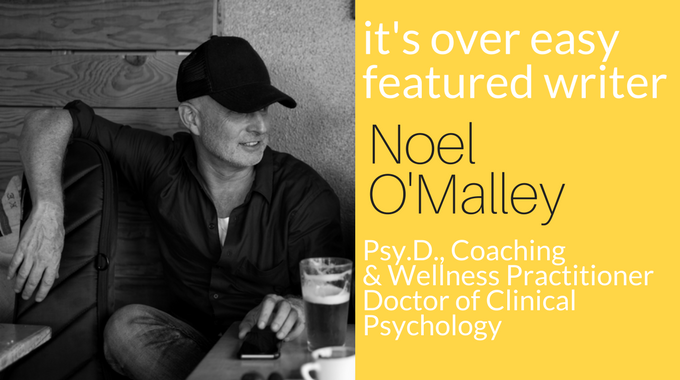I hope you’re here visiting it's over easy as a curious tourist surfing the web rather than facing the end of your marriage. If you are here researching divorce, listen to Laura. She knows divorce and wants to give you a pathway that is efficient and direct so that you have the room to focus your energy on everything but the machinations of divorce. We should all have care providers with Laura’s pragmatism, authenticity, tenderness, and strength so that we can focus on the deeper things divorce asks of us.
Laura invited me to write something about divorce from the perspective of a mental health practitioner. I worked as a professional psychologist and psych assistant for about 18-years and have recently shifted over to a small private consultation, coaching and wellness practice that isn’t psychotherapy and is a place to talk and work through and navigate in a different way.
The canon of divorce-insight literature reads as pretty fleshed-out to me already, and I don’t want to be too shiny a person telling you its not that hard to divorce when it is, and when every divorce is specific and personal. Tolstoy (Anna Karenina) wrote, “All happy families are alike; each unhappy family is unhappy in it’s own way”. I don’t wish divorce on anyone and no one thinks it’s easy. I’ve never seen a happy divorce in my practice, but I’ve had the pleasure to see some well-rendered, functional, efficient, healthy divorces where the kids thrive and the adults adapt and grow apart and together. There’s an antiquated archetype of mom holding baby and dad holding mom as the “ideal” (I know, hetero-normative but useful), and maybe we need a new archetype where mom and dad are apart, yet collaboratively holding the children.
This is often the reality of marriage—something more like a brand that absolves one of confronting the self as we evolve personally and spiritually.
The function of relationship is growth. I think of that Ram Dass quote about most adult relationships as “time spent reassuring each other that our costumes are on straight”. Divorce is not a platform to express fear, rage, or selfishness—nor does it give either spouse the right to lash out and wound the other. Divorce isn’t an instrument to express anger and hurt. Divorce is a passage and an agent of change.
I think we’re at about a 60% divorce rate here in California and so, we should be developing a culture around separation that works to help couples have healthy relationships, while acknowledging the fact that divorce is a normal experience in which all involved can thrive. There are good divorces and central to the good divorce is understanding that relationships are not very good shelters. For those of us who work in relationship counseling, we know relationships can and do end. Acknowledging this and making a clear and efficient passageway is a hopeful enterprise.
Nothing is more profoundly true than the realization that marriage is not a shelter. Adults are whole people. We’re not dependents. We have a world of coping mechanisms, internal resources and experiences to draw upon, and there is a presumption of unconditional wholeness and having a sense-of-self. I don’t mean this to sound unforgiving because it’s so easy to feel and be wounded, abandoned, betrayed, and to struggle and be vulnerable in profound ways. There is a duality in this. And it is a cultural-norm to see marriage as achieving a blended identity-shelter in order that we can unplug from the hard work of having a self (one can see this as an unconscious ever present longing to be back in the womb where all our needs were met before they registered as needs and where there is no concept of separation).
I'm taking the tack that relationship/marriage is not a shelter for anyone but the kids. Your children don’t have the life experience, the sophisticated defense mechanisms, the language and sense of personal narrative or enough self to be whole. They’re borrowing some of their wholeness from you. Their primary need isn’t that your marriage succeeds (although I wouldn’t wish the divorce experience on any child); their primary need is shelter and stability. They’ll need you both intact and functioning and cohesive, and to have boundaries and some sense of continuity of values and structure because that’s how they experience shelter. The divorce has to leave you both (no matter how diminished, enraged or frightened) capable of sheltering the kids into their adulthood.
Marriage is not an existential shelter for anyone except your children and the real work of divorce is keeping those kids sheltered in their relationship to the both of you, as you work through loss, change, stress, and ambiguity. To make the divorce-work efficient as financially accessible is to leave all these other resources on the table to see the kids though their own ‘wildest storm of all’ (Rilke). That’s the real offering of it’s over easy.
Dr. O'Malley pratices in Beverly Hills, California. You can find him on Facebook or email him @ drnoelomalley@gmail.com
Go to this page about online divorce to learn more.




Comments